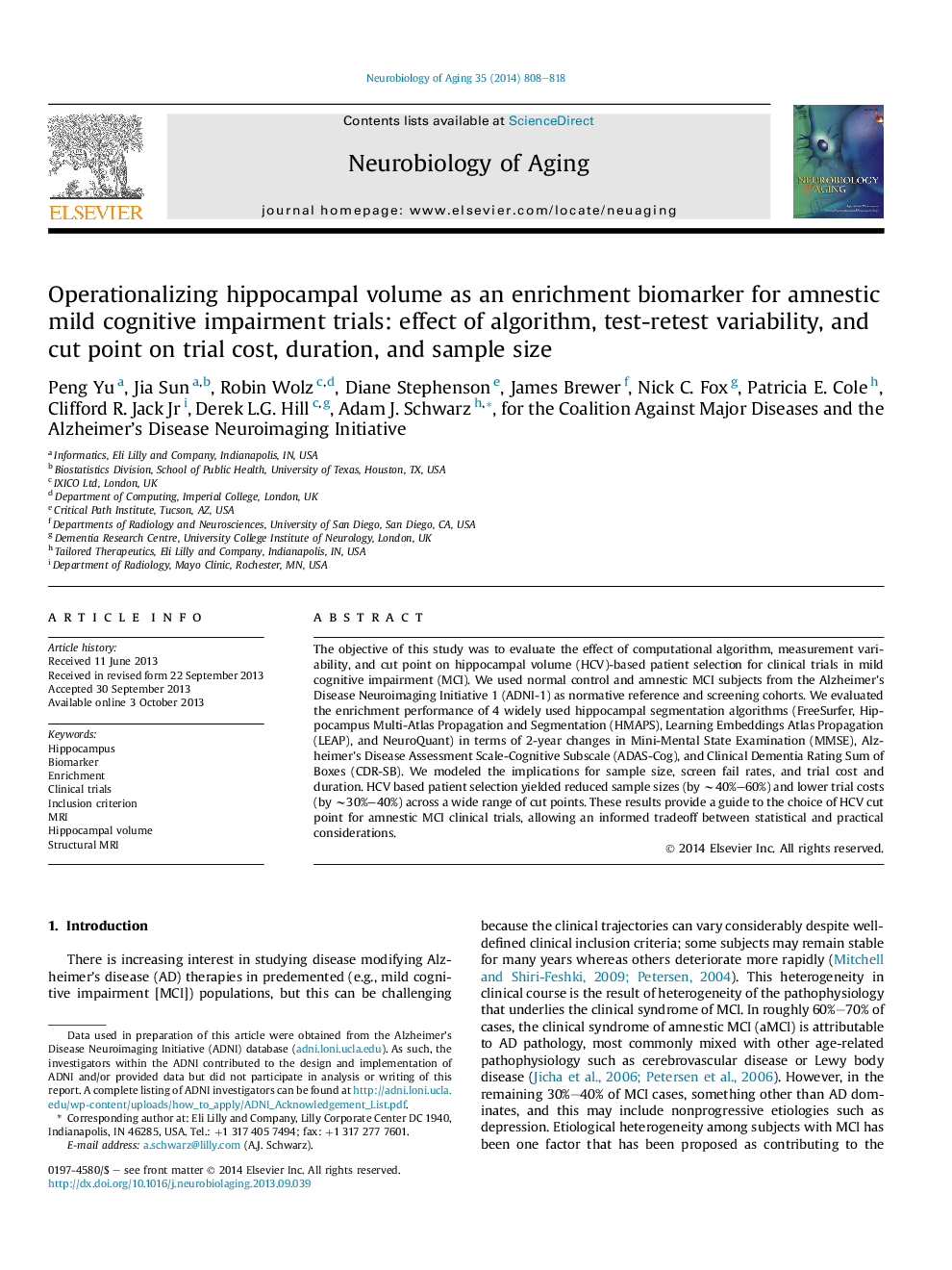| Article ID | Journal | Published Year | Pages | File Type |
|---|---|---|---|---|
| 6806116 | Neurobiology of Aging | 2014 | 11 Pages |
Abstract
The objective of this study was to evaluate the effect of computational algorithm, measurement variability, and cut point on hippocampal volume (HCV)-based patient selection for clinical trials in mild cognitive impairment (MCI). We used normal control and amnestic MCI subjects from the Alzheimer's Disease Neuroimaging Initiative 1 (ADNI-1) as normative reference and screening cohorts. We evaluated the enrichment performance of 4 widely used hippocampal segmentation algorithms (FreeSurfer, Hippocampus Multi-Atlas Propagation and Segmentation (HMAPS), Learning Embeddings Atlas Propagation (LEAP), and NeuroQuant) in terms of 2-year changes in Mini-Mental State Examination (MMSE), Alzheimer's Disease Assessment Scale-Cognitive Subscale (ADAS-Cog), and Clinical Dementia Rating Sum of Boxes (CDR-SB). We modeled the implications for sample size, screen fail rates, and trial cost and duration. HCV based patient selection yielded reduced sample sizes (by â¼40%-60%) and lower trial costs (by â¼30%-40%) across a wide range of cut points. These results provide a guide to the choice of HCV cut point for amnestic MCI clinical trials, allowing an informed tradeoff between statistical and practical considerations.
Related Topics
Life Sciences
Biochemistry, Genetics and Molecular Biology
Ageing
Authors
Peng Yu, Jia Sun, Robin Wolz, Diane Stephenson, James Brewer, Nick C. Fox, Patricia E. Cole, Clifford R. Jr., Derek L.G. Hill, Adam J. Schwarz,
